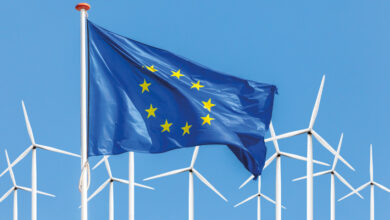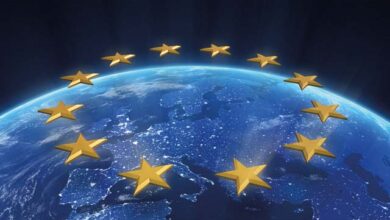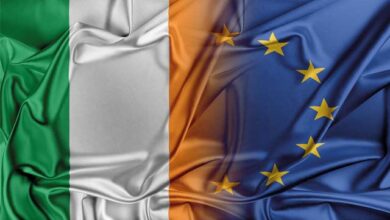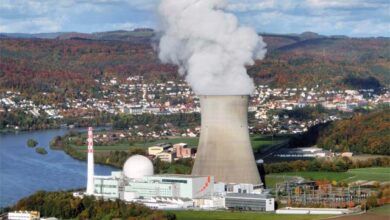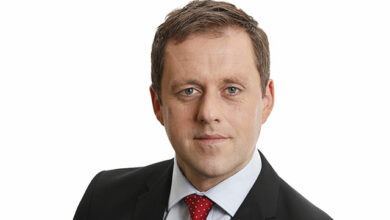European Parliament election preview
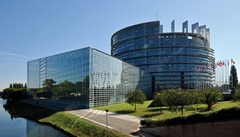 After a term dominated by the euro zone crisis, the European Parliament election will take place across the EU between 22-25 May. The new Parliament will hold office until mid-2019.
After a term dominated by the euro zone crisis, the European Parliament election will take place across the EU between 22-25 May. The new Parliament will hold office until mid-2019.
The Government has decided that polling day in Ireland will coincide with the local elections on Friday, 23 May. The North’s election has been scheduled for Thursday, 22 May.
At present, Ireland has 12 seats in the Parliament: three each in Dublin, East, South and North-West. The 2009 election delivered four seats for Fine Gael, three each for Fianna Fáil and Labour, one for the Socialist Party (Joe Higgins) and one independent (Marian Harkin).
Unlike the Dáil, Irish European Parliament vacancies are filled by co-option rather than by-election, meaning that three of the current MEPs have not yet been elected to their office.
Paul Murphy was co-opted to succeed Higgins after his election as TD. Likewise, Phil Prendergast succeeded new TD Alan Kelly in Ireland South and Emer Costello succeeded Proinsias De Rossa in Dublin. Nessa Childers, Labour’s Ireland East MEP, left the party in April 2013 in protest against austerity.
The number of seats is being reduced to 11 – following Croatia’s accession – and will be sub-divided between three constituencies:
• Dublin (3 seats);
• Midlands North-West (4 seats); and
• South (4 seats);
Midlands North-West will incorporate Cavan, Donegal, Galway, Kildare, Laois, Leitrim, Longford, Louth, Mayo, Meath, Monaghan, Offaly, Roscommon, Sligo and Westmeath. Ireland South will expand to take in Carlow, Clare, Kilkenny, Wexford and Wicklow.
Fine Gael MEPs sit with the centre-right European People’s Party and Labour with the Socialists and Democrats. Fianna Fáil and Marian Harkin are part of the Alliance of Liberals and Democrats for Europe. Paul Murphy sits in the far-left GUE/NGL group and Nessa Childers is non-attached.
The North has three MEPs: Martina Anderson (Sinn Féin), Diane Dodds (DUP) and Jim Nicholson (UUP).
Turnout in the State was 58.6 per cent in 2009, higher than 42.8 per cent in the North and 43 per cent across the EU. Overall turnout has been below 50 per cent since 1994.
Despite relative apathy from the electorate, the Parliament was given more power through the Lisbon Treaty. It is now equal to the Commission and Council when making policy in agriculture, trade and energy.
Reflecting its growing status, the Parliament has invested in a major campaign to raise its profile as the elections approach, including an official brand for the elections: Act. React. Impact.
In many ways, the European Parliament poll is an anomaly. For a start, all MEPs are effectively in opposition and holding the Commission and Council to account. The ‘high stakes’ of choosing a government are absent and no group has an overall majority.
The Parliament sits in both Brussels and Strasbourg, adding a considerable expense to its running costs. The French Government opposes any move away from Strasbourg and sees the city as an example of post-war reconciliation.
The new Parliament will comprise 751 MEPs, elected in three different ways:
• party lists (for 730 seats);
• single transferable vote (20 seats in Ireland, Northern Ireland and Malta); and
• first-past-the-post (for the German speakers’ seat in Belgium).
In a final twist, three MEPs represent French territories outside Europe. These are included as they send representatives to the French Parliament.
Ireland’s current MEPs
Dublin
• Gay Mitchell (FG)
• Emer Costello (Labour)
• Paul Murphy (Socialist)
East
• Mairead McGuinness (FG)
• Nessa Childers (Ind)
• Liam Aylward (FF)
South
• Brian Crowley (FF)
• Seán Kelly (FG)
• Phil Prendergast (Labour)
North West
• Marian Harkin (Ind)
• Jim Higgins (FG)
• Pat ‘The Cope’ Gallagher (FF)

